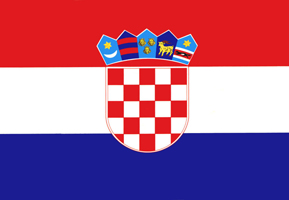Sustainable Development and Environmental Protection Council
Savjet za održivi razvoj i zaštitu okoliša (SORZO)
|
Contact Name: Dr. Branka Pivcevic-Novak Position: Head of Department for General Environmental Policy and Sustainable Development, Ministry of Environmental and Nature Protection Email: This email address is being protected from spambots. You need JavaScript enabled to view it. Phone: +385 1 3717283 Address: SORZCO c/o Ministry of Environmental Protection, Physical Planning and Construction |
|
|
Mission Statement ‘The Sustainable Development and Environmental Protection Council was established for the purpose of achieving coordinated and harmonised economic development in the context of environmental protection and ensuring conditions for sustainable development, as well as for the continuity of the professional and scientific basis for the regulation of certain issues in the field of environmental protection and sustainable development.’ |
Composition and Membership SORZO replaced the Croatian Council for Environmental Protection (SAZO, 2001-08) by Government Decision pursuant to the Croatian Environmental Protection Act, widening the council remit to include SD. Chair: Natalija Koprivanac. SORZO comprises nine Members, from a range of relevant civil society/NGO organisations, including one UNEP member. There is no fixed term of appointment. SORZO has an appointed administrative secretary but no other managerial or administrative staff and is otherwise coordinated by the Ministry of Environmental Protection, Physical Planning and Construction. SORZO forms temporary expert working groups for specific tasks, thereby drawing on resources and expert input from outside appointed members. |
|
Role and Functions
SORZO delivers opinion and provides assessment, advice and proposals on existing and potential Government policy, delivered as unanimous recommendations adopted by the Council. Under the Environmental Protection Act all aspects of environmental protection policy must be seen by SORZO prior to submission for approval by Government and Parliament. The Council represents a forum for discussion and strategic questions and operates in a responsive, supervisory mode. It does not (directly) initiate action.
|
Recent Activities Specific current and future priorities include:
Publications and events:
On average, 10 to 12 Council sessions are planned per year. All decisions have to be reached in plenary. |

